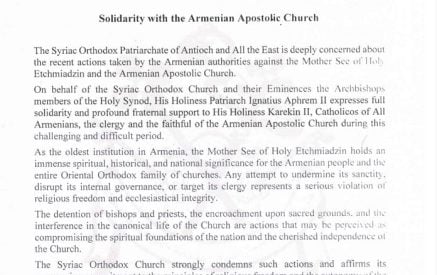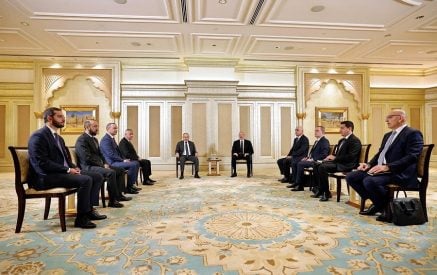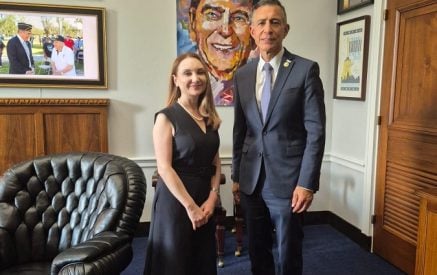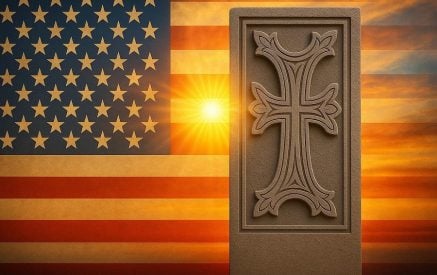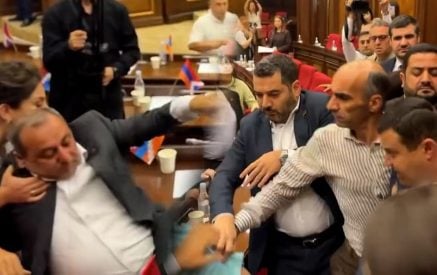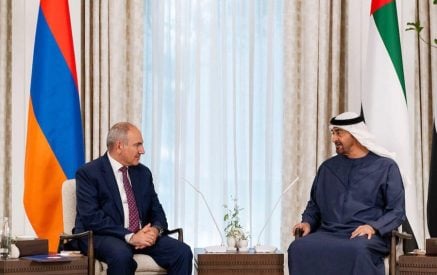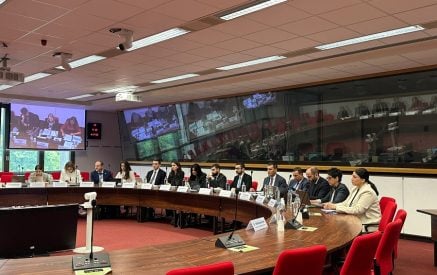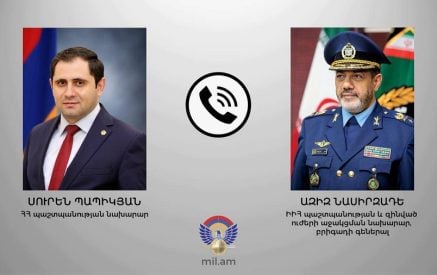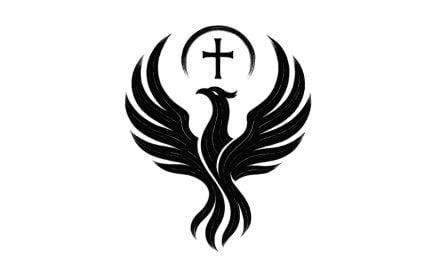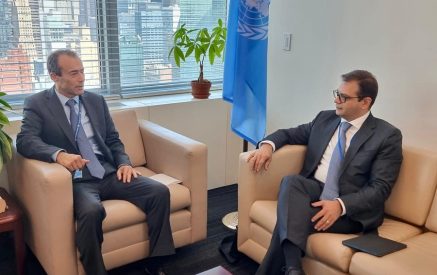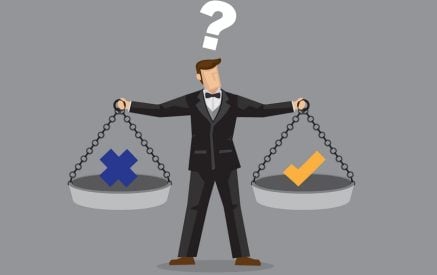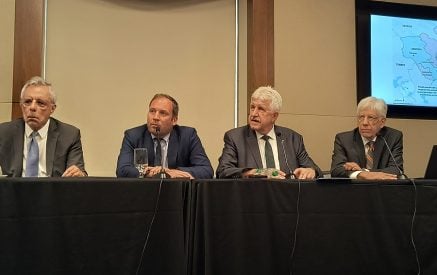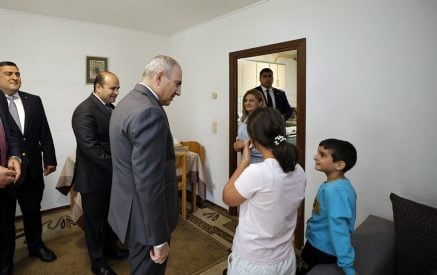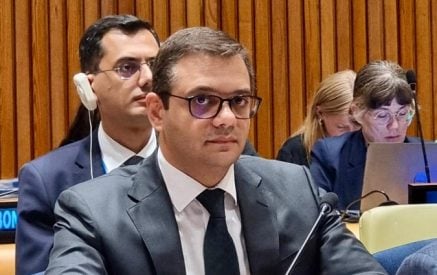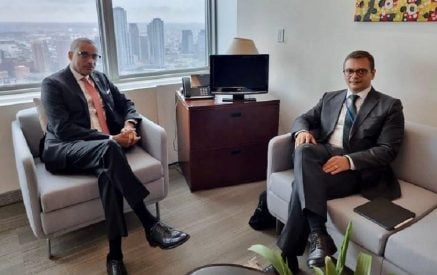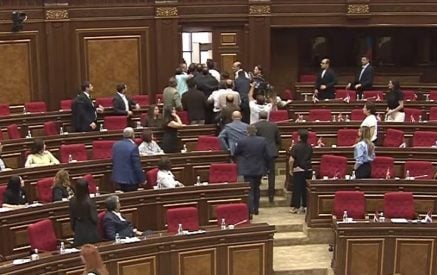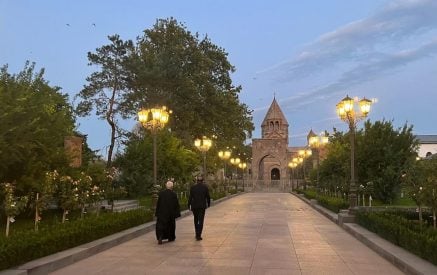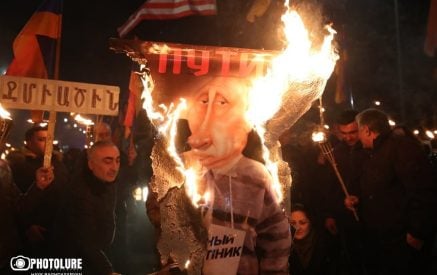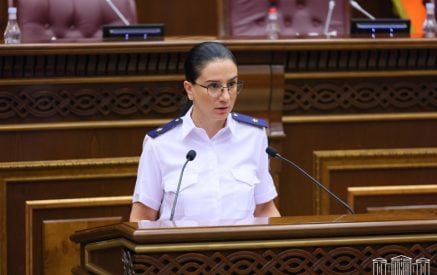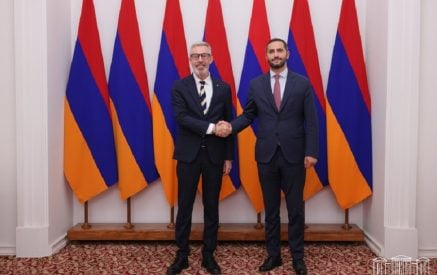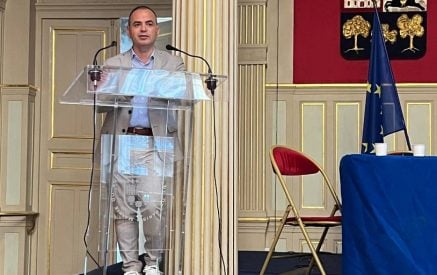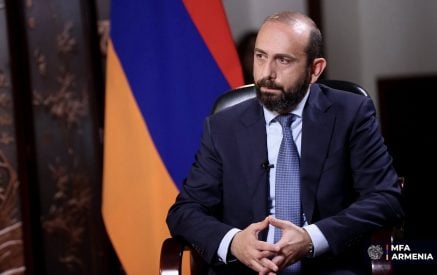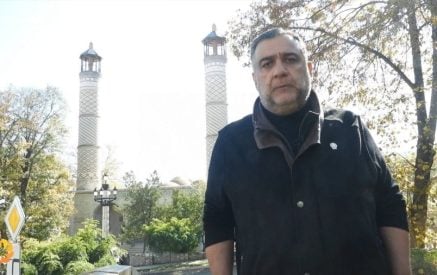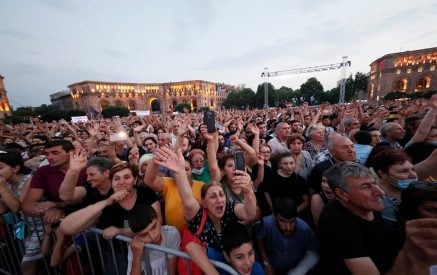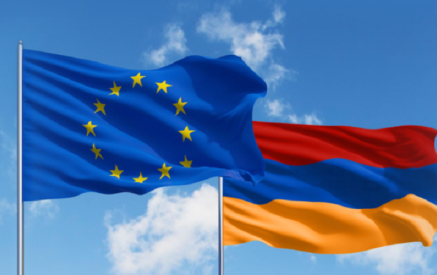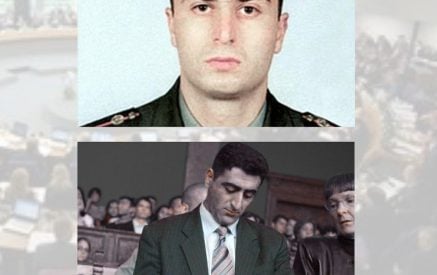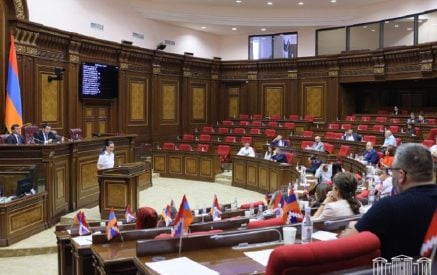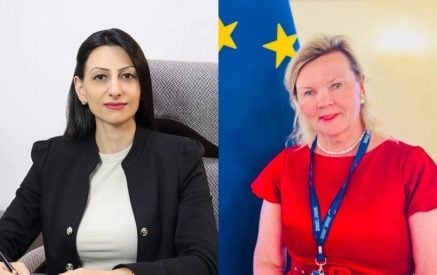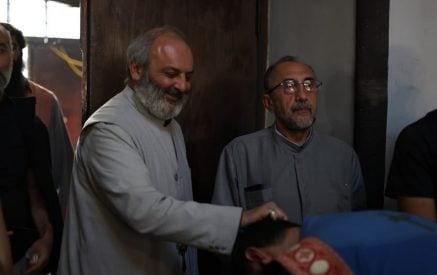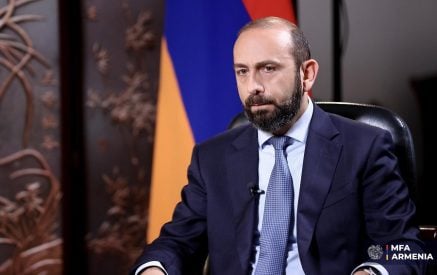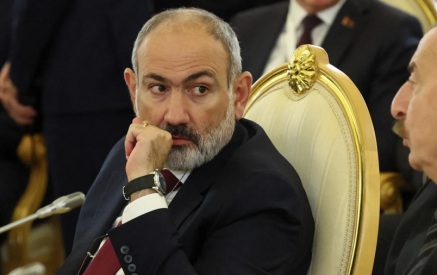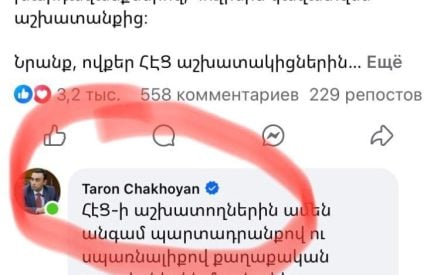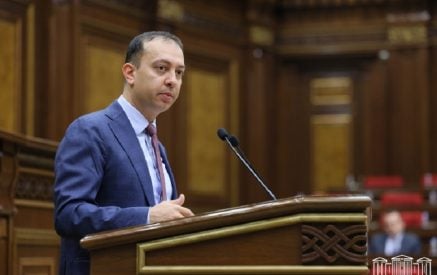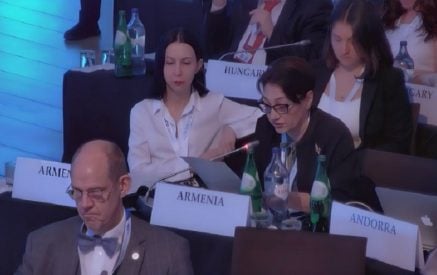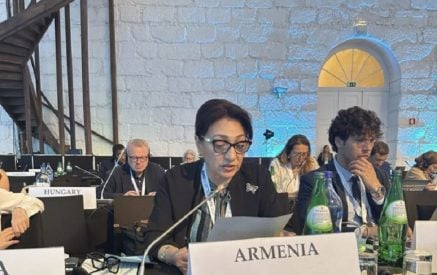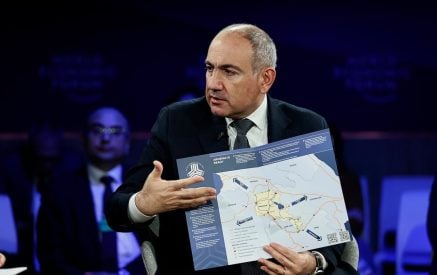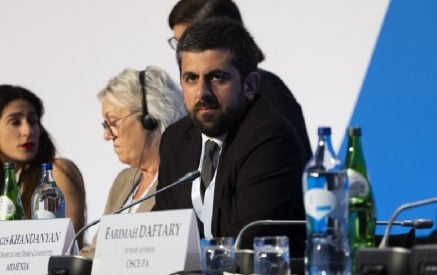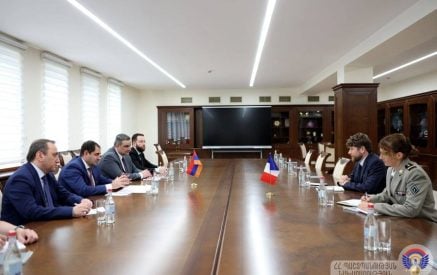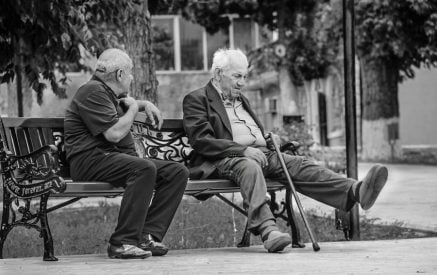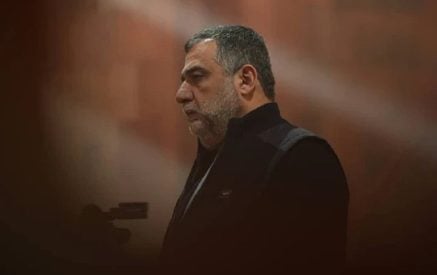Part 2
Read the beginning here
Ruben Vardanyan, evolutionary visionary, Co-founder of the Aurora Humanitarian Initiative, UWC Dilijan, FAST, International School of Leadership and Professional Development “Matena” and other projects.
This year, Armenia has celebrated the 30th anniversary of its independence. The sovereign Armenian state has existed for about a third of a century, and this is an important milestone that warrants an earnest discussion about what we have today, what we have managed to build, and how the current state of affairs shapes our historical destiny. The loss of a significant territorial share of Artsakh, for whose independence so much blood was shed in the late 20th century, became for me personally and for many people who take the fate of Armenia and Armenians to heart, that red line, crossing which we simply must begin to act decisively so that the frightening prospect of finally losing Artsakh, and with it Armenia, does not become a reality. The existential threat we have experienced once again forces us to rethink the current model of existence and dictates the need to choose a development trajectory and model that would ensure security, prosperity, and preservation of national identity for the citizens of Armenia and Armenians around the world, would help them reclaim a sense of dignity and pride in their country and nation.
Read also
In 1991, an independent Armenia came into being on a small portion of what historically used to be Armenia.
Photo credit: Photolure News Agency ©
The millennia-long history of the Armenians features periods when we were deprived of our own statehood for a long time, a position that is extremely vulnerable amid ever-accelerating civilizational development, which does not leave us a chance to maintain a significant place in the global context, and, therefore, the Armenian people, despite their small number, always plucked up the grit to fight for the restoration of their own statehood within the boundaries of their historical territories. In the late 20th century, the common dream of Armenians finally came true: in 1991, an independent Armenia came into being on a small portion of what historically used to be Armenia. The conundrum, however, is that an independent Armenian state appeared on the world map not as a result of deliberate and purposeful joint actions of the elite and numerous attempts of the people to defend their right to sovereignty through diplomatic and military means, but in the wake of the collapse of the Soviet Union. The situation was different, though, when it comes to the independence of Artsakh: all social elements united and armed themselves to defend it, and paid a high price for it.
At the watershed juncture when Armenia finally gained sovereignty, the domestic and diasporan elites did not come together to jointly choose the development trajectory for both the country and the nation as a whole and did not work out a common agenda that would define a set of necessary reforms.
The formative years of the fledgling Republic of Armenia proved tough: the country had not yet recovered from the consequences of the catastrophic earthquake of 1988, followed by a territorial blockade and a war in Artsakh. In this setting, Armenia’s political elite was preoccupied with the problems of survival, and issues of a long-term development strategy were hardly of greatest concern for it. Unfortunately, at the watershed juncture when Armenia finally gained sovereignty, the domestic and diasporan elites did not come together to jointly choose the development trajectory for both the country and the nation as a whole and did not work out a common agenda that would define a portfolio of necessary reforms. We proved to be ill-equipped for the independence, which we had craved for so long. We failed to use the right to choose our path, and as a result—and this was not the only reason—as automatically, we adopted an extractive, paternalistic, state-centric model of existence and a single-vector path of development.
Of course, Armenians all over the world were proud of the emergence of their own state. There are many wonderful examples when the Diaspora not only helped the warring Armenia economically (sometimes the Armenians of the Diaspora volunteered in the republican army and showed true heroism) but also invested money in the future of the country, building infrastructure facilities and creating modern educational institutions. Unfortunately, this assistance lacked systematicity. The political and military elite of Armenia considered that victory in the war was possible mainly through its own efforts and using internal resources, and that ostensibly gave them the right and legitimacy to monopolize the rule over the country. For this reason, they did nothing for the diasporan elite to have a say on fundamental issues of modernizing state and economic institutions, and the diasporan elite mostly assumed the role of a bystander. To make things worse, the country’s leaders of the early 1990s milked the new opportunities ushered in by unbridled capitalism for personal financial gain, without ever laying the foundations for Armenia’s future prosperity.
Despite the obvious positive effect that the creation of their own national state and the victory in the war for the independence of Artsakh had, it would be a stretch to claim that the Armenians set up the basis for national unification. Representatives of the creative intelligentsia, scientists, talented executives, military men, and engineers did not relocate to the young independent Armenia, as was the case in the 1920s and 1930s. On the contrary, the newest, post-Soviet diaspora included those who left and continue to flee their homeland after it gained independence. The brain drain, which was picking up the speed especially in the first decade after the collapse of the USSR, took a disastrous toll on the young sovereign state. Society was practically stripped of its moral leaders. Unbridled capitalism prompted a shift in moral priorities: brute force trumped intellectual and cultural prowess, while dexterity and getting rich without any qualms outweighed respect for work and professional reputation, the once traditional value the Armenians used to cherish.
After a short while, the emotional upsurge aroused by the gained sovereignty and victory in the war gave way to disappointment. As a legacy from the collapsed empire, we inherited an extensive hard and soft infrastructure: industrial facilities and transport routes connecting them, research institutes, academies of sciences, cultural institutions, and healthcare organizations. Though it is hard to believe in this day and age, in the late 1980s, the Armenian SSR was the hub of innovative technologies of a powerful state and was on a par with the most advanced states of its time, such as South Korea, Singapore, and Israel. However, the hard infrastructure, a leftover of the USSR, turned out to be largely obsolete and even redundant, and it eventually ran out of funding. Many elements of the old soft infrastructure also became a luxury a small country with limited resources could not afford. We missed the fact that the enormous Soviet legacy is not only a guarantee of future prosperity but also a burden of responsibility, and, consequently, we failed to adapt it properly to the needs and capabilities of the new state and society.
Seventy percent of Armenian residents are satisfied with the current state of affairs.
I hate to say that over the past 30 years, we have been unable to create a model of existence that would lead Armenians to prosperity, and blown the opportunity to carry out incremental, evolutionary changes. The dream of Ankakh Hayastan (Independent Armenia), our own state on biblical land, a safe and prosperous homeland for all Armenians, contrasts too sharply with the real present-day Armenia. On the one hand, this contrast has become a source of constant disappointment, which makes Armenians roam the world in search of a better life, undermining their homeland, while the Diaspora is limited to the role of a benefactor who every once in a while helps Armenia. On the other hand, it gave rise to apathy and indifference in many. Recent opinion polls have shown that 70% of respondents are satisfied with the current state of affairs. There is an unbridgeable gap between the mundanity of survival and the dreams of unattainable prosperity, which deprives people of the will to act and ravages the belief that they are able to contribute to improvements on their own.
The majority of Armenians quietly accept the defeat in the war and the loss of most of the lands of Artsakh.
Photo credit: Photolure News Agency ©
As we all remember, the April 2016 four-day war has appreciably exacerbated the internal and external political situation in the Republic of Armenia. However, the changes that began as a response to this, which fueled optimism in many people both in the country and in the Diaspora, unfortunately, did not result in profound reforms aimed at fundamentally changing the current system.
Undoubtedly, the events of the spring 2018 was the result of public discontent caused by a dead-end model of existence, corrupt officials evading prosecution, rampant crime, machismo, rudeness in the public sphere, etc. The most significant consequence of those events is allegedly the fact the protest movement has brought together people with different views on the country’s developmental path. In itself, such a unity prompting representatives of different social strata to actively participate in the renewal of the state is an invaluable foundation on which we could jointly build our future.
The new government, however, made the same fatal mistake as it considered itself to be entitled to monopolize power in the country.
The resignation of the country’s former leadership does not mean an automatic change in the development model. The new leaders found it easy to criticize their predecessors, but much of what they declared was incredibly difficult to implement. Even the merciless fight against corruption announced by the new government has been carried out inconsistently and, therefore, has almost drawn a blank. As I have already pointed out, the feeling of unity greatly facilitated the implementation of systemic reforms, which could be much more successful and effective if it were possible to consolidate the national elite and jointly work out a vision for our future. Regrettably, we did not take advantage of the opened window of opportunity; the elites of Armenia and the Diaspora did not unite to jointly build the country and revive the nation. Worse, society has split into upholders of the new government and those who support the previous leaders. The new government made the same fatal mistake as their predecessors in the early 1990s, considering itself to be entitled to monopolize power in the country. As a result, the task force who was to carry out the much-needed reforms was selected from those loyal to the new government. The brightest minds, top-tier professionals, and talented executives from both Armenia and abroad were left on the sidelines.
The task force who was to carry out the much-needed reforms was selected from those loyal to the new government without involving the best minds and executives from both Armenia and abroad.
Photo credit: Photolure News Agency ©
As I have already mentioned, after gaining independence in 1991, the Republic of Armenia, as if by default, adopted an extractive political and economic model from the Soviet Union. It means that all our tangible and intangible assets are not used for creative activities, but mainly in an extractive way, that is, to derive rent. This model allowed the country to repel the acts of Azerbaijani aggression along our border, as well as in Artsakh, but failed to ensure a level of defense capability that would have thwarted even the thought of encroaching on our borders. Over the course of three decades, the country has failed to create an environment conducive to domestic and foreign investment, providing a level of innovative defense capability that any attempts to use military force against Armenia and Artsakh would be pointless. For Azerbaijan, the lessons learned from the defeat in the war for the independence of Artsakh bore fruit: all these years it was beefing up its potential to attack us, and our greatest mistake was to turn a blind eye to it, deluded into our own invincibility.
It is difficult to carry out systemic reforms in a state of stability and prosperity, albeit imaginary, especially if the society itself is not prepared for changes. The overwhelming majority of Armenian citizens have never traveled abroad and do not have the faintest notion of how the world is changing, how people live in other countries, and what should be chosen as priorities and standards when building their own future. The full-scale crisis that broke out last year—the pandemic and its consequences, the war in Artsakh, the split in society, the political drama—furnishes the last opportunity for us to make changes, which cannot be postponed any further. If even this situation does not motivate us to unite and act, if we again miss the chance to jointly comprehend our plight and agree on our course of action, if we continue to stagnate and are change-averse, Armenia will lose its sovereignty, at least de facto if not de jure, and the Armenians, although they can avoid total assimilation, will cease to exist as a national-civil unit and will become representatives of the ancient nation scattered around the world.
To be continued


